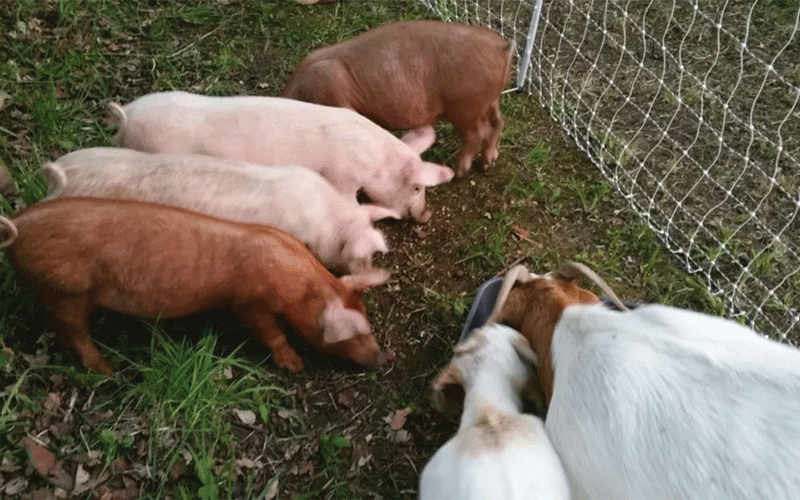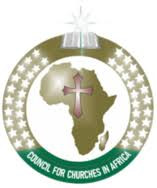
THE Zimbabwe Agricultural Growth Programme (ZAGP), which is sponsored by the European Union (EU), has transformed the country's goat and pig value chains by empowering rural farmers.
A total of 3 521 goats and 44 294,9 kilogrammes of goat meat had been sold as of March 2023 under the programme, earning farmers US$151 610,06, according to the most recent ZAGP report.
Additionally, farmers supplied 193 504kg of pork to Harare markets for US$591 379.
Farmers, who shared their success stories in the report, stated that the programme had changed their lives.
In the modest environs of ward 9, Matongorere village of rural Murehwa, 34-year-old pig producer Joyline Koga is on a mission to become a household name in pig production.
Having started her enterprise with one sow (female pig) in 2019, she has steadily grown it overcoming various hurdles to achieve her current 12 sow unit. Like many small and medium-scale producers, Koga faced challenges in installing an efficient water system, accessing affordable feed and lack of basic training.
Koga was selected to be one of the recipients of the Llyod’s’ of London matching grant facility for the installation of solar-powered piped water systems for small and medium pork producers in Mashonaland East province.
The project supported 70% of the total cost for purchase, delivery, and installation of all materials and Koga chipped in with a 30% mainly catering for labour costs.
- Chamisa under fire over US$120K donation
- Mavhunga puts DeMbare into Chibuku quarterfinals
- Pension funds bet on Cabora Bassa oilfields
- Councils defy govt fire tender directive
Keep Reading
Prior to being awarded the grant, Koga along with other farmers from the province underwent a one-day training on business management and technical training on good agricultural practices.
“The training we received was life changing; it gave me a new perspective on how to run my enterprise and helped to define my growth plans. The installation of the solar-powered nipple drinking system has upgraded my production. I no longer have to pay for labour to clean the pigsties or fetch drinking water for the pigs. With the savings I am planning to construct additional pigsties,” she said.
With the challenges related to water now addressed, Koga, the report notes, is planning to expand her production to 18 sows by the end of year 2023. She is looking forward to improve her waste management system by constructing concrete gullies, plans to construct a bio-digester are afoot.
“Since the installation of the nipple drinking system, I have seen a major improvement in my pigs; they look healthier because they can now drink water whenever they need it. I am now reaching minimum production targets, especially litter size at birth, birth weight, weaning weight and daily feed conversion.”
Another farmer, Patricia Marambadoro from Buhera South started off with three goats in 2016 which took a long time to multiply due to lack of good animal husbandry practices.
In 2019, the Value Chain Alliance for Livestock Upgrading and Empowerment (Value) project under ZAGP was introduced in her ward and she was one of the farmers who subsequently underwent several training and capacity building programmes which enhanced her knowledge on commercial goat production.
“I am grateful for the support of the project in uplifting our production as small producers. After the training I realised that my goat housing was not ideal. I constructed a new elevated structure which is more suitable for goat production,” she said.
For Letwinner Nyagano of ward 15, Chegutu district, the transformation of her pig enterprise is akin to a fairytale. In just two years the growth of her business can best be described as meteoric.
In 2020 she had a 10-sow unit housed in substandard pigsties coupled with challenges such as poor productivity from inferior breeds, high cost of feed, uncompetitive markets, expensive drugs, and vaccines.
Prior to joining the Mashonaland West Pig Producers Syndicate, Nyagano had to face these challenges on her own with little success, according to the report.
Thanks to the syndication model that promotes collective action, Nyagano relies on fellow producers to deal with the challenges associated with the value chain.
The project’s capacity building programmes, in collaboration with the Pig Industry Board, have also left an indelible mark on Nyagano business. The knowledge gained has enabled her to rectify mistakes and grow her enterprise to a current 80-sow unit viewed as one of the best performing in the country.
“Armed with the new knowledge and skills from the training, we constructed new pigsties which conform to international standards. I am grateful to the project for the matching grant support to build a single block,” adds Nyagano.
- Follow us on Twitter @NewsDayZimbabwe






